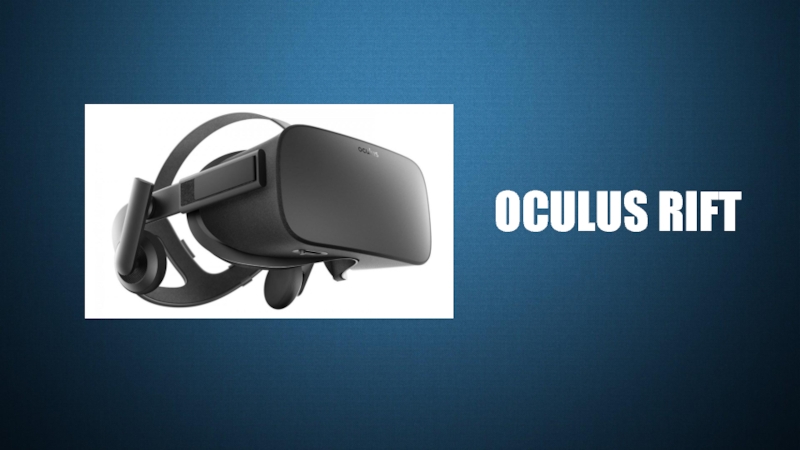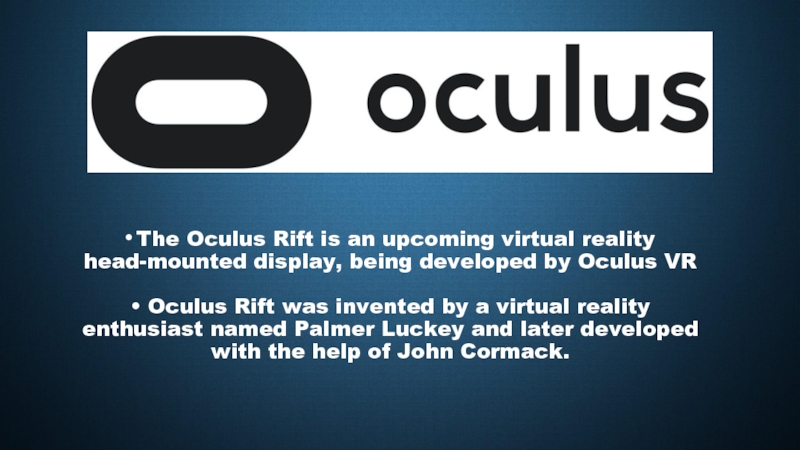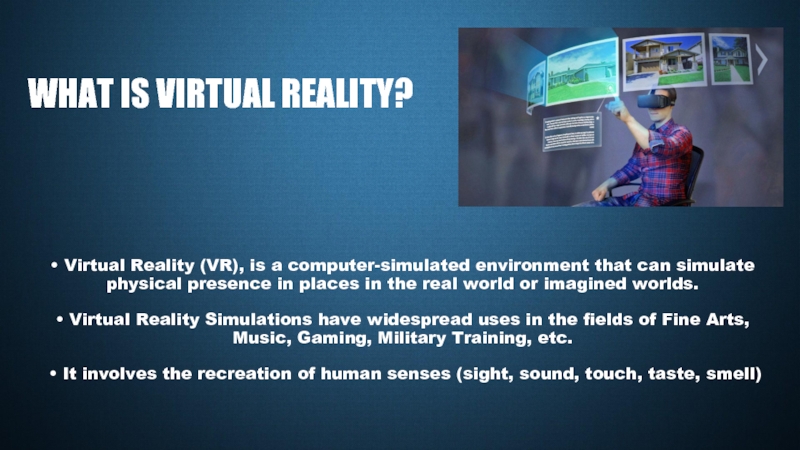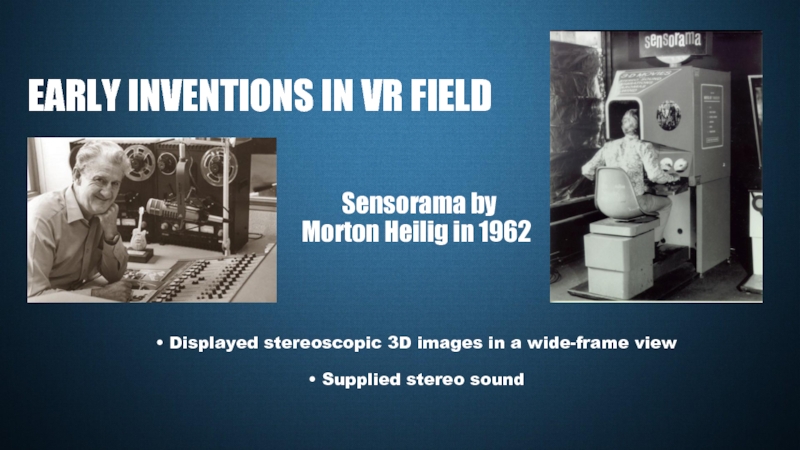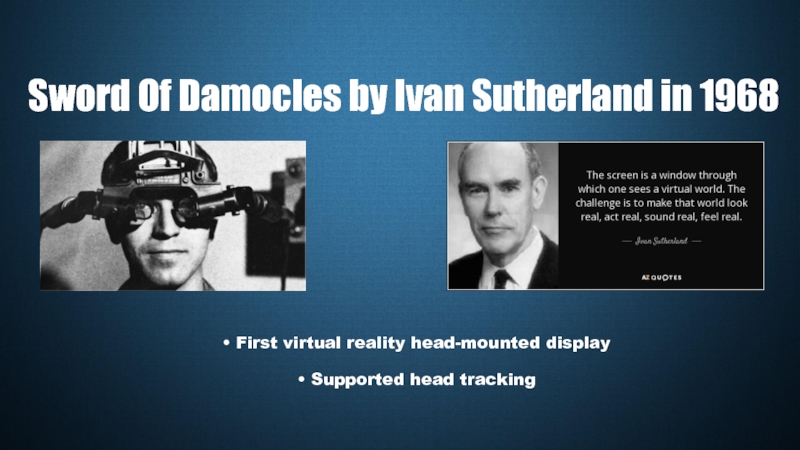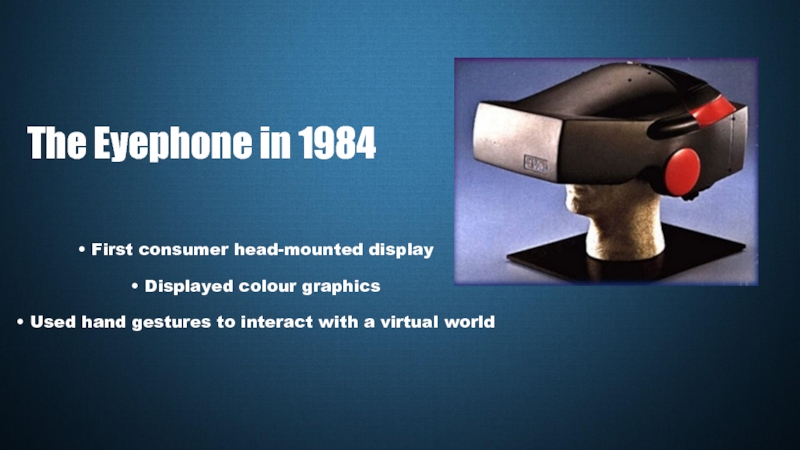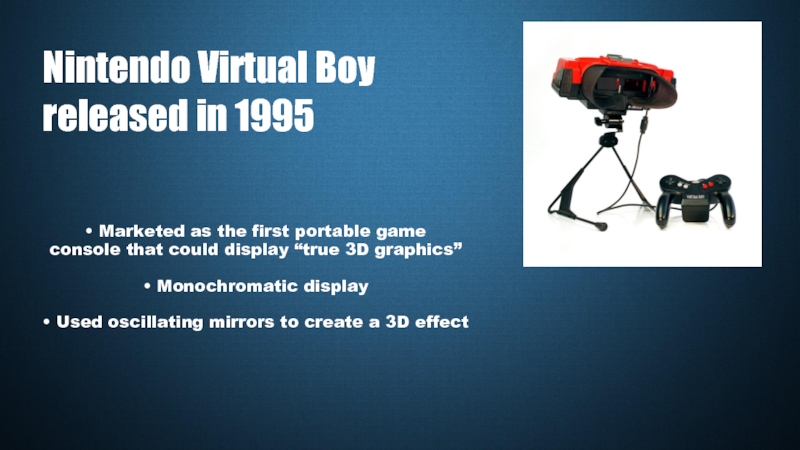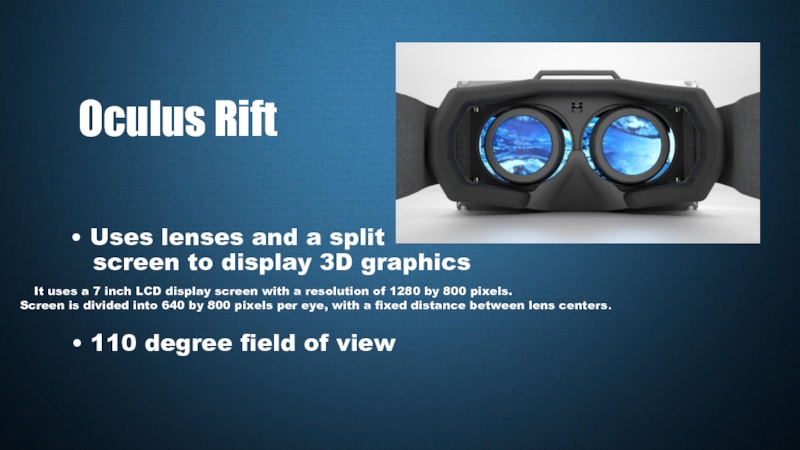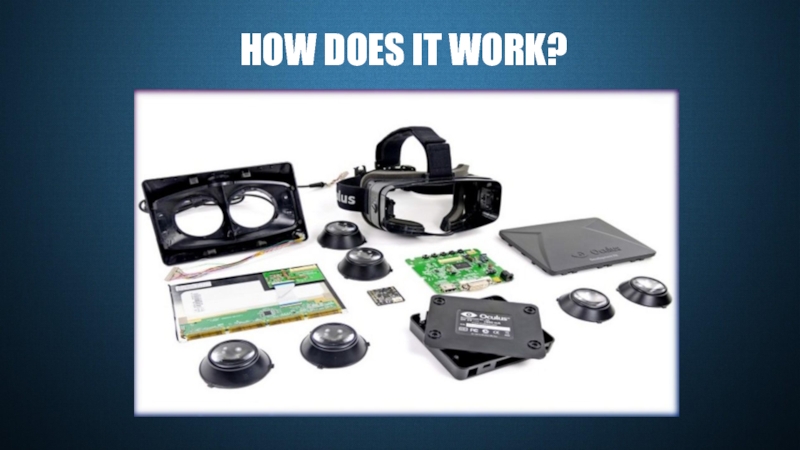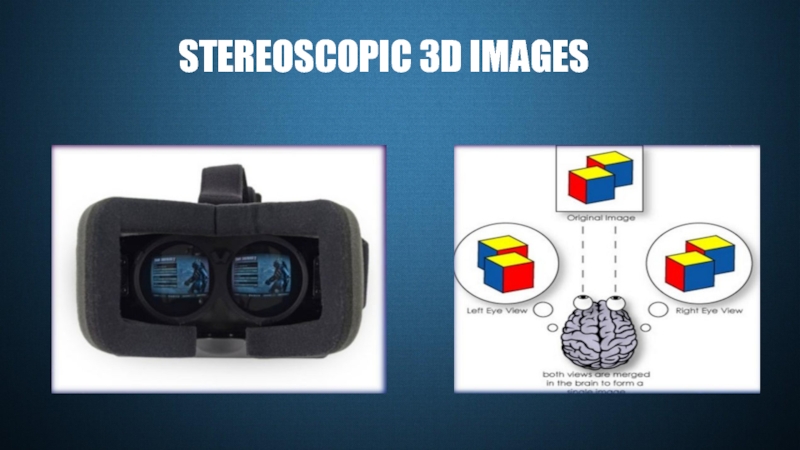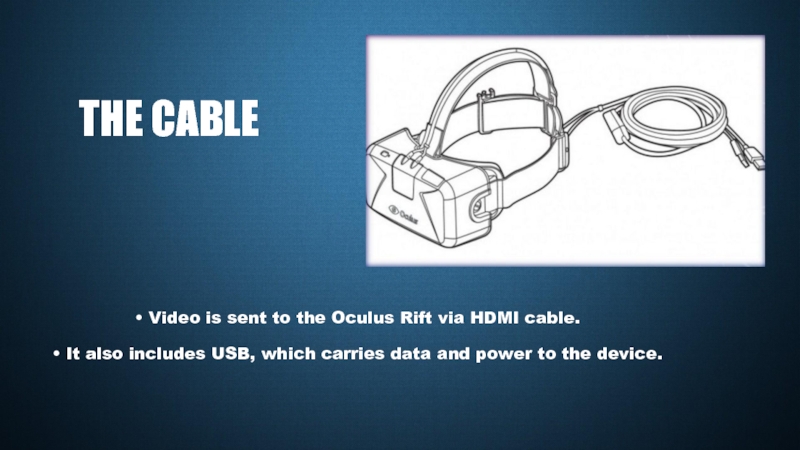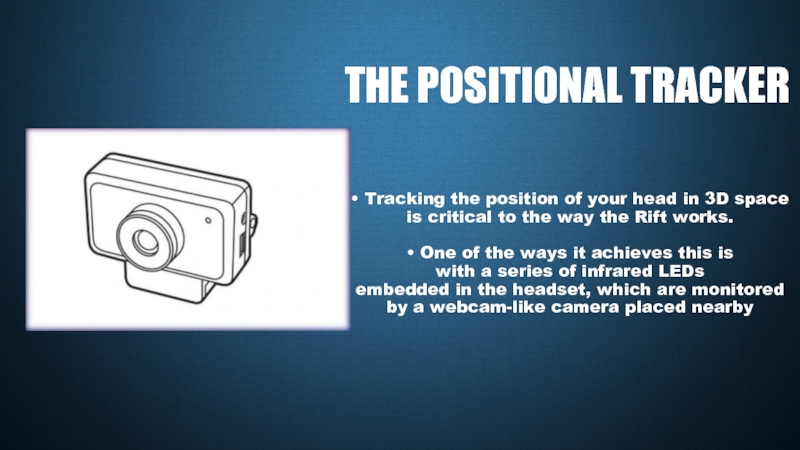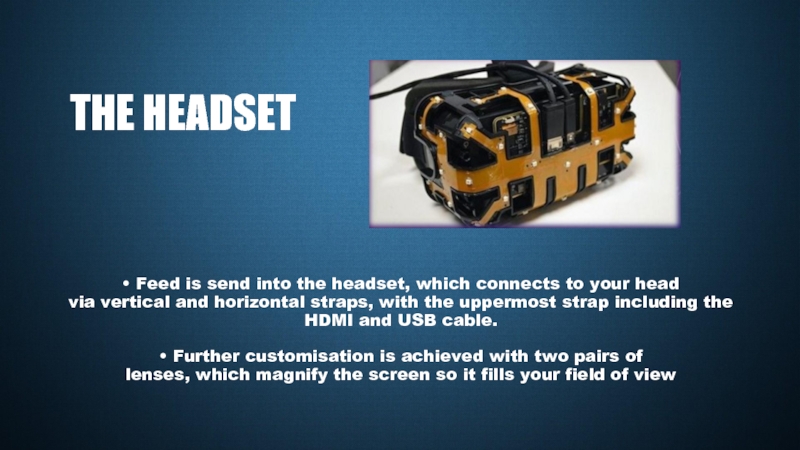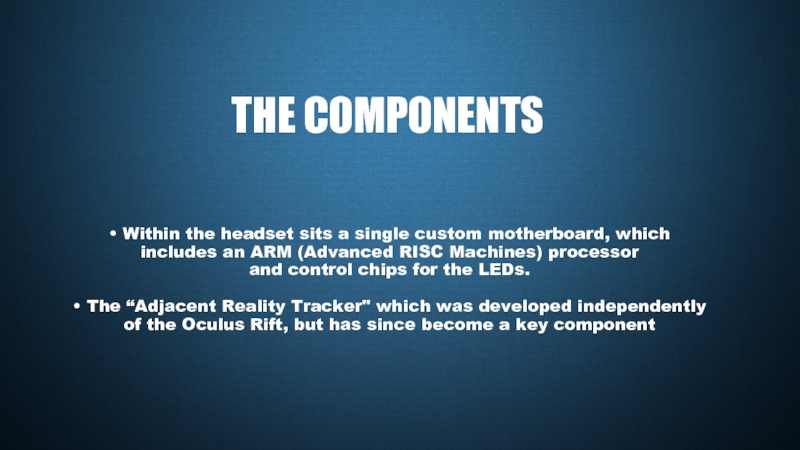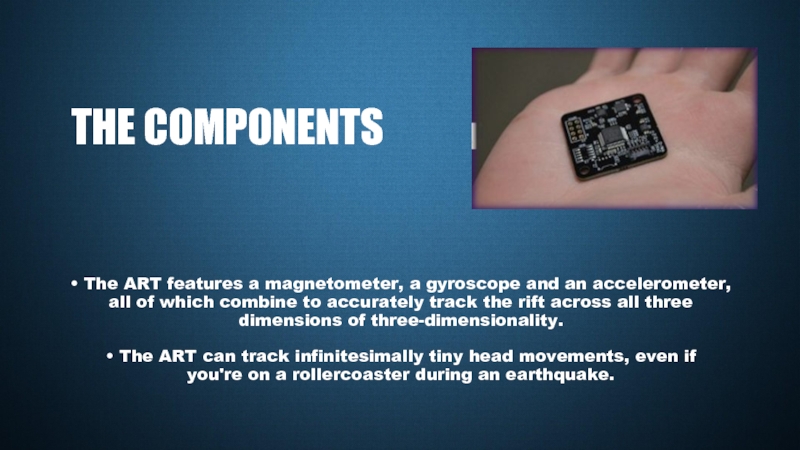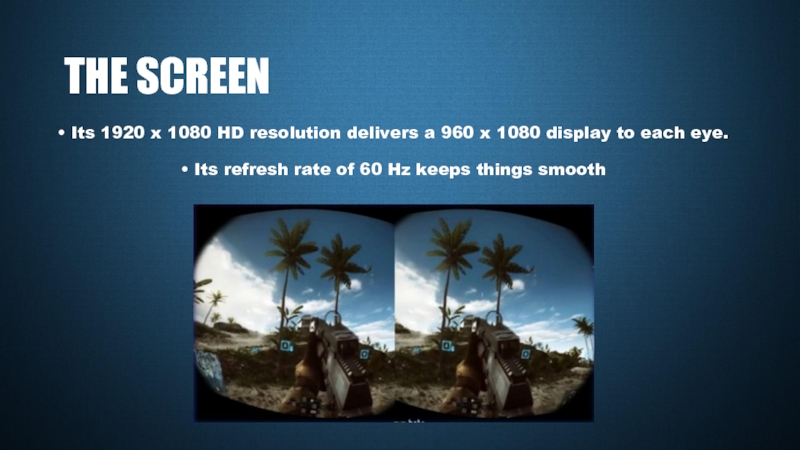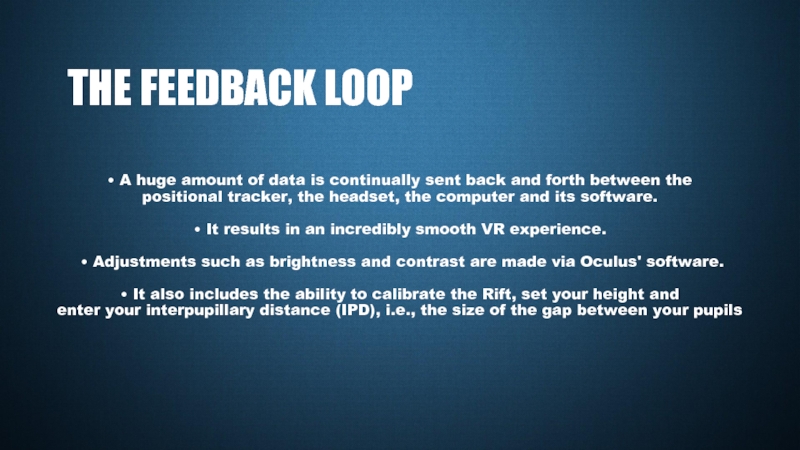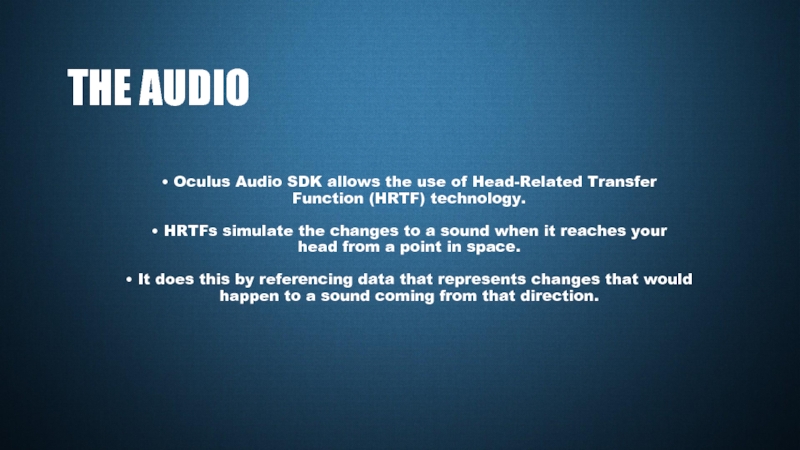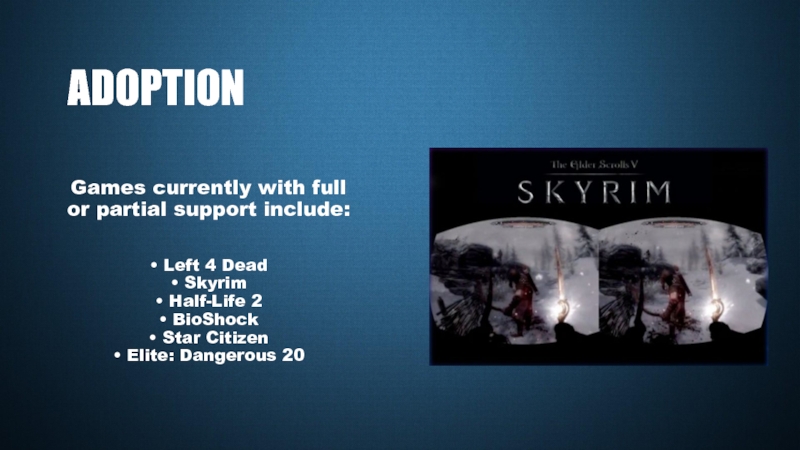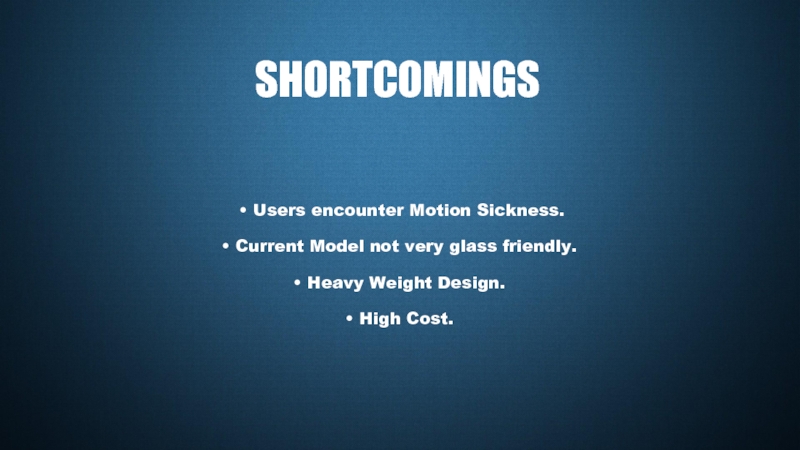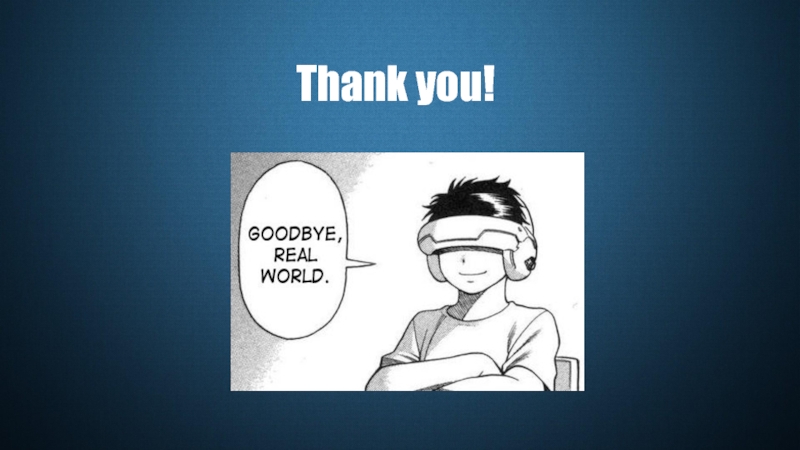- Главная
- Разное
- Дизайн
- Бизнес и предпринимательство
- Аналитика
- Образование
- Развлечения
- Красота и здоровье
- Финансы
- Государство
- Путешествия
- Спорт
- Недвижимость
- Армия
- Графика
- Культурология
- Еда и кулинария
- Лингвистика
- Английский язык
- Астрономия
- Алгебра
- Биология
- География
- Детские презентации
- Информатика
- История
- Литература
- Маркетинг
- Математика
- Медицина
- Менеджмент
- Музыка
- МХК
- Немецкий язык
- ОБЖ
- Обществознание
- Окружающий мир
- Педагогика
- Русский язык
- Технология
- Физика
- Философия
- Химия
- Шаблоны, картинки для презентаций
- Экология
- Экономика
- Юриспруденция
The Oculus Rift презентация
Содержание
- 1. The Oculus Rift
- 2. • The Oculus Rift is an upcoming
- 3. • Virtual Reality (VR), is a computer-simulated
- 4. Sensorama by Morton Heilig in
- 5. • First virtual reality head-mounted display
- 6. • First consumer head-mounted display
- 7. • Marketed as the first portable game
- 8. • Uses lenses and a split
- 9. HOW DOES IT WORK?
- 10. STEREOSCOPIC 3D IMAGES
- 11. • Video is sent to the Oculus
- 12. • Tracking the position of your head
- 13. • Feed is send into the headset,
- 14. • Within the headset sits a single
- 15. • The ART features a magnetometer, a
- 16. • Its 1920 x 1080 HD resolution
- 17. • A huge amount of data is
- 18. • Oculus Audio SDK allows the use
- 19. Games currently with full or partial
- 20. • Users encounter Motion Sickness.
- 21. Thank you!
Слайд 2• The Oculus Rift is an upcoming virtual reality head-mounted display,
Слайд 3• Virtual Reality (VR), is a computer-simulated environment that can simulate
WHAT IS VIRTUAL REALITY?
Слайд 4 Sensorama by Morton Heilig in 1962 • Displayed stereoscopic 3D
EARLY INVENTIONS IN VR FIELD
Слайд 5• First virtual reality head-mounted display
• Supported head tracking
Sword Of Damocles by Ivan Sutherland in 1968
Слайд 6• First consumer head-mounted display • Displayed colour graphics • Used
The Eyephone in 1984
Слайд 7• Marketed as the first portable game console that could display
Nintendo Virtual Boy
released in 1995
Слайд 8• Uses lenses and a split
Oculus Rift
Слайд 11• Video is sent to the Oculus Rift via HDMI cable.
THE CABLE
Слайд 12• Tracking the position of your head in 3D space is
THE POSITIONAL TRACKER
Слайд 13• Feed is send into the headset, which connects to your
THE HEADSET
Слайд 14• Within the headset sits a single custom motherboard, which includes
THE COMPONENTS
Слайд 15• The ART features a magnetometer, a gyroscope and an accelerometer,
THE COMPONENTS
Слайд 16• Its 1920 x 1080 HD resolution delivers a 960 x
THE SCREEN
Слайд 17• A huge amount of data is continually sent back and
THE FEEDBACK LOOP
Слайд 18• Oculus Audio SDK allows the use of Head-Related Transfer Function
THE AUDIO
Слайд 19Games currently with full or partial support include: • Left 4
ADOPTION
Слайд 20 • Users encounter Motion Sickness. • Current Model not very glass
SHORTCOMINGS
